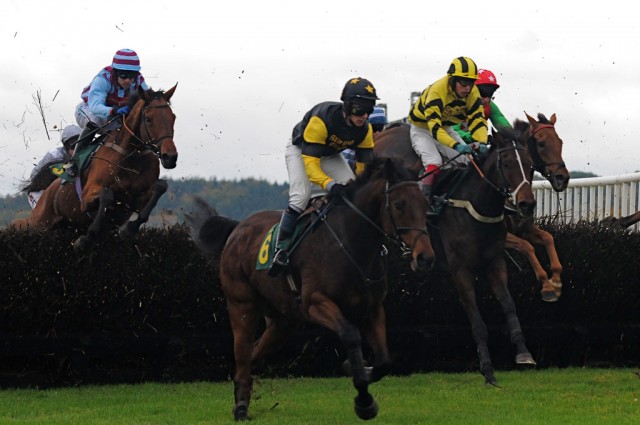The New York Times recently reported that the use of anabolic steroids is banned in horse-racing. The Times article leads readers to believe that anabolic steroids are no longer used in horses – at all. This is highly misleading since the Racing Medication and Testing Consortium has actually approved the therapeutic use of four anabolic steroids in equine athletes.
By 2009, virtually every racing jurisdiction in the United States had banned the use of steroids in horses.
The therapeutic use of stanozolol (Winstrol), boldenone (Equipoise), nandrolone (Deca Durabolin) and testosterone are permitted for racehorses in many states that sanction horseracing as long as they are discontinued within a certain window prior to competition and test below a certain threshold level during in-competition testing.
The RMTC’s model rule on anabolic steroids simply requires that horses pass a steroid test on the day of racing competition. The RMTC requires the discontinuation of anabolic steroids at least 60 days prior to competition in order to guarantee that the horse does not fail the steroid test.
However, there is no random steroid-testing outside of competition. Theoretically, steroid use in horses could be discontinued much closer to competition as long as the horse is able to pass the steroid test. Yet the New York Times clearly gives the impression that horse-racing is currently free of anabolic steroids.
What is undeniable, however, is that trainers and owners have one fewer chemical solution — in an industry replete with them — to get a horse in peak condition for racing’s biggest days.
“Their training patterns have had to change,” said Rick Arthur, equine medical director for the California Horse Racing Board. “You cannot train a horse as hard as you could with anabolic steroids. The impact was not on the performance itself but in the training up to the performance.”
Steroids were a part of the chemistry that most believe contributed to Big Brown running a faster Ragozin Sheets number in the Derby than Secretariat, Seattle Slew and Affirmed — the last three Triple Crown champions. Curlin, the 2007 Horse of the Year, also was given steroids and ran a similarly eye-popping Ragozin number in the Preakness Stakes.
“Clearly steroids was a threat to our sport as they were to other sports,” said James L. Gagliano, the president and chief operating officer of the Jockey Club. “It had an effect on consumer confidence.”
Certainly, the sport of horse-racing would love to escape the stigma of steroids that has tarnished the reputation of other sports. Should mainstream media play along by providing positive, if not misleading, public relations regarding doping in horse-racing?

Photo credit: Paolo Camera / flickr

